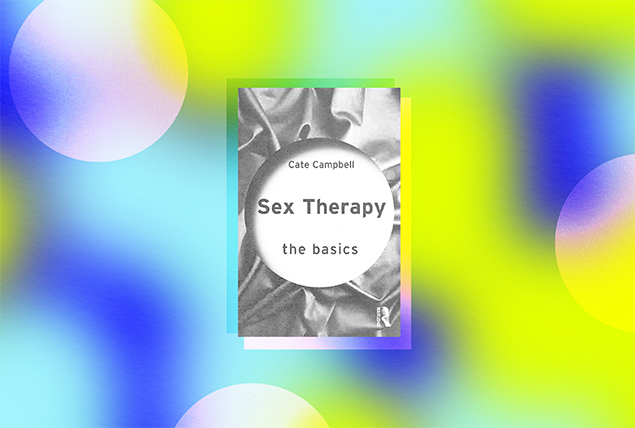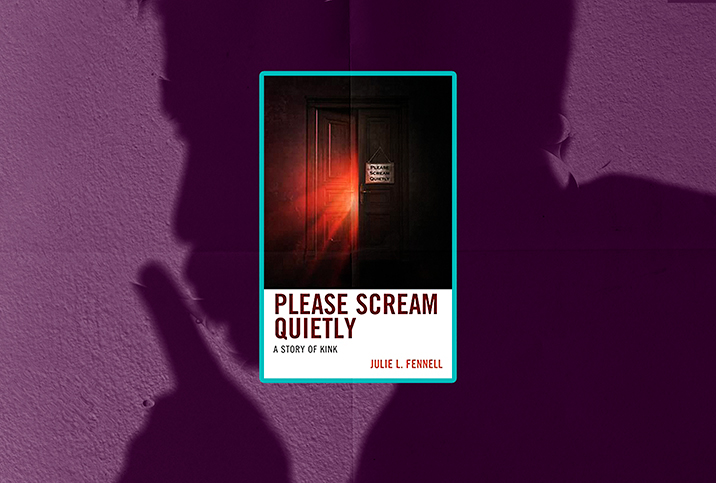Between the Pages: 'Sex Therapy' Takes a New Approach to the Basics

As an introduction to contemporary sex therapy, "Sex Therapy: The Basics" is essential reading for anyone with an interest in sexual issues. Throughout, author Cate Campbell, M.A., describes various approaches to sex therapy as she seeks to help both practitioners and patients make informed choices regarding treatment for sexual problems.
Campbell is a sex, relationships and trauma therapist accredited by the College of Sexual & Relationship Therapists and the British Association for Counselling & Psychotherapy in the United Kingdom. She has taught for many years and was a visiting lecturer at University College London. Campbell is also the author of the books "Contemporary Sex Therapy" and "Love and Sex in a New Relationship."
In this exclusive interview with Giddy, Campbell discusses sex therapy's benefits, porn dependency, mismatched libido and more.
Editor's note: This interview has been edited for length and clarity.
What led you to write 'Sex Therapy: The Basics'?
Campbell: I was asked to do it, which seemed like a lot of fun because I looked at all the courses that offer sex therapy training [in the U.K.] and their content and tried to cover it in this book. Some of them use different approaches. There are a lot of ways of working with sexual problems.
It's a real toe-in-the-water [approach] about all sorts of different ways of working with sexual problems. It is for anybody interested in sex therapy, so they can explain to patients or clients what it involves or what different routes you can take. Also, it's for people just interested in sex therapy, who want to find out what different routes they could take. Then they can go and find what they think would work for them.
What are the common problems you see as a sex therapist?
People have problems with orgasms. They have problems with intimacy overall. They lose interest in sex. They lose desire. They may have orgasms too quickly or maybe they take too long. Sometimes they experience sexual pain. People have problems with relationships and with sexual identity and gender. Maybe it's a problem with sexual techniques. It could be literally anything.
It's surprising how many people have poor information about sex, relationships and even contraception. Across the board. At the moment, a massive amount of people have major problems with body image because they're looking at Instagram [and other social media] way too much, seeing people wearing filters and thinking, "Oh, well, I'm no longer attractive."
There are also lots of life-stage issues. People can lose their sexual connection after having a baby or around menopause or when they're stressed at work. And it's quite difficult to just regain that connection once it's slipped away. That's really hard. If people hit a period of illness or depression or something like that, they might want to retain their intimacy but may not be able to sustain an active sex life.
There are ways of managing that as well. You name it, we've probably seen it.
You write about porn in the book and porn dependency. Can porn be helpful? And at what point is it problematic?
It's helpful if people are using it and enjoying it. It's only a problem when people use anything—alcohol, porn, gambling, whatever it happens to be—to manage their mood.
You give them alternatives [to porn], or they discover alternatives, and you treat the underlying reasons that they need to manage their mood. If they have underlying trauma or anything like that, you can treat that and you can teach them how to manage their mood. Then they can use porn as and when they want it rather than feeling drawn to it to avoid thoughts that they don't like.
It's the same as with anything else. If you're using porn and you're enjoying it and it's not causing you any problems, then obviously, it isn't a problem if it's not a problem. It's only a problem when someone feels it is.
What's an example of a sex therapy success story?
Well, a typical example might be a couple with one saying the other one isn't interested in sex or that they have a discrepant sex drive where one wants sex more than the other one does. When [a couple] feels upset about this, they're often very focused on intercourse, something they can't live without, and they're quite often at the stage of breaking up.
They come to sex therapy. They spend several weeks just exploring one another's bodies with no pressure and with a sex ban in place. So they're not touching one another in order to arrive, they're touching one another in order to explore and just get used to touching [each other's] bodies in a different way. So you would be asking them to touch the insides of elbows, behind the ears, instead of going to the genitals all the time, which are off-limits, and they gradually get used to doing that.
They get used to not knowing what the other one's thinking or what the other one likes, [and] they feel very, very close very quickly. It sounds a bit boring looking behind someone's ears, but believe me, it's a very, very close and intimate process.
Then they start showing [more of their bodies] and allowing genital touch. However, not in order to arouse. Ultimately, they will start showing one another what they like.
So, again, it's all without knowing what the other one's thinking. And they're discussing ways they manage their arousal, what they do if they want to orgasm.
They're learning to take responsibility for their own pleasure. And what typically happens is they learn how to touch one another and what they enjoy mutually, and [at this point,] they will very often move ahead of the sex therapist.
Typically, by the end [of the sessions], they're not hung up about orgasm and intercourse. They are having a really good time and they're probably having lots of orgasms and lots of intercourse. It's not the focus anymore, and they're talking at that stage very openly, they're able to say what they like and dislike, and it doesn't cause any pressure. It's no longer a threat. And they go away extremely happy.


















